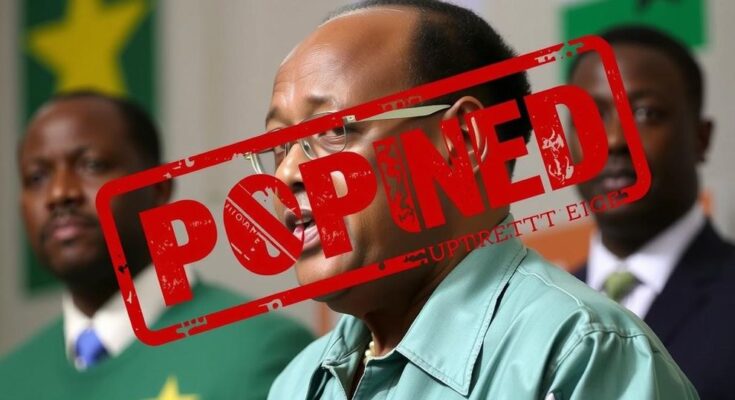Togo has postponed its first senatorial elections to February 15, allowing political parties more time to prepare. The elections are crucial for implementing a new constitution that has faced backlash from opposition parties, some of which plan to boycott the vote. The Senate, established in 2002 but inactive, will consist of 61 members, partly elected and partly appointed.
The senatorial elections in Togo, initially scheduled to occur soon, have been rescheduled for February 15 in order to afford political participants additional time for preparation, according to a presidential decree released on Friday evening. The official campaigning period is set to commence on January 30. This election represents a crucial milestone in the implementation of a controversial new constitution, which has faced significant opposition from various parties and civil society organizations.
Several political entities had requested the postponement to enable further candidate registrations. However, notable opposition factions, such as the National Alliance for Change (ANC), have declared their intent to boycott the upcoming elections, deeming them a component of a “constitutional coup d’état.” The Senate, a body established through constitutional revision in 2002, has yet to be operational; it will consist of 61 members, with 41 being elected by municipal and regional councilors, while the remainder will be appointed by the president of the Council of Ministers.
The newly adopted constitution replaces the previous system of direct presidential elections with a parliamentary model. Critics assert that this change is a strategic maneuver by President Faure Gnassingbé to extend his grip on power indefinitely. Gnassingbé presides over the Union for the Republic (UNIR), which overwhelmingly secured 108 out of 113 seats in the most recent legislative elections.
The rescheduling of the senatorial elections in Togo is a pivotal development within the broader context of Togo’s political landscape and constitutional reforms. The new constitution, which alters the method of presidential succession and governance, has ignited fierce debate and dissent among political parties and civil society groups. The establishment of the Senate, initially formulated in 2002, is a significant step following the call for a new governance structure within the country. The move has raised concerns regarding the potential implications for democracy and political stability in Togo, particularly amid the ongoing tensions with opposition groups and calls for greater political inclusivity.
In summary, the delay of Togo’s senatorial elections to February 15 underscores the ongoing complexities of the nation’s political dynamics amidst a backdrop of constitutional reform. The forthcoming elections are perceived by some as a critical juncture in the implementation of a contentious new governance framework, while opposition groups continue to express their objections to the electoral process, positioning it as part of a broader struggle for political legitimacy in Togo. Ultimately, the developments will significantly shape the nation’s political trajectory.
Original Source: www.barrons.com




